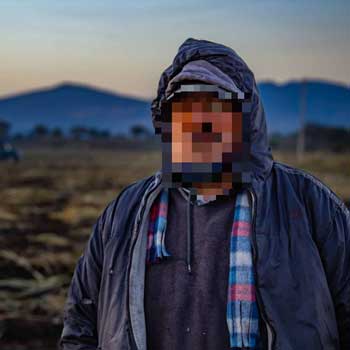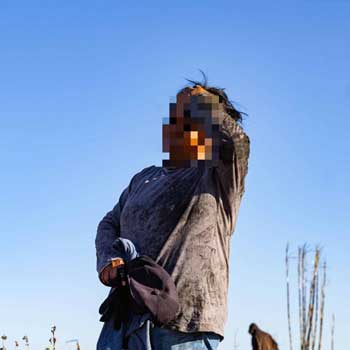
In Mexico, sugarcane production and processing is comprised of a complex web of actors. Alongside sugar refineries, mills and farmers, the supply chain is made up of less visible actors, such as cabos or crew leaders and field leaders, who largely operate informally. The least visible and most vulnerable actors in the sugar cane supply chain are the sugarcane cutters, who are exposed to many labor risks, including severe risks to their health and safety.
According to a 2019 International Labor Organization Report, the workers in the agricultural sectors are the most affected worldwide by climate change. Severe heatwaves accentuate the risks associated with heat-related illness and heatstroke. On the labor front, sugarcane cutters face risks associated with forced labor indicators, like deceptive recruitment around conditions of work or housing, as well as debt bondage related to recruitment bonuses known as enganches. Another pervasive issue is the recruitment of a predominantly male workforce for fieldwork. However, in many cases their wives or domestic partners and children are harvesting sugarcane, but not receiving any pay, benefits, or recognition for their work, resulting in payment violations, gender inequity, and child labor.
The following is a snapshot of the most prominent risks and hazards in the perspectives and words of sugar cane cutters and cabos (crew leaders), who have received training from Senderos, a joint program of the US Department of Labor’s Bureau of International Labor Affairs and Verité. During the last harvest season, Senderos trained over 1,000 sugarcane and tobacco harvesters, cabos, and producers in in the states of Jalisco and Nayarit, Mexico. Training topics covered workers’ rights under Mexican law, how workers can exercise these rights and access remedy, and how cabos and producers’ associations can engage in due diligence to reduce the risk of forced labor and other types of labor violations.
In the following testimonials, project participants have given Verité consent to use their words and images. However, names have been changed and faces are blurred to anonymize worker identity.
Roberto

A Senderos project participant and crew leader (cabo) in sugarcane fields in Mexico. His face has been blurred for anonymity.
“My name is Roberto. I am 55 years old and I am a sugar cane cutter. I grew up in this and I knew how to use the “pichoaca” since I was a child. The pichoaca is a tool that was used in the past to cut the sugar cane. At the age of 12, I became a cabo. I dropped out of school and I have been cutting cane for 40 years.
The main risk of this job is cutting yourself because everything is sharp. When you pass the stone over the machete to sharpen it, or when you cut [cane], you can cut your foot, and well, the foot is what we see most often. I think that something important and different about Senderos is that it helped us with first aid kits. Before we did not have it and it is important because cutting yourself is something that happened often here. With the first-aid kit, sometimes we no longer have to go to the hospital.” – (interview, Nayarit, Mexico)
Pilar

A Senderos project participant and field worker in sugarcane fields in Mexico. Her face has been blurred for anonymity.
“My name is Pilar. I have been cutting sugar cane for the past eight years.I decided to come to work in cutting sugarcane because I was alone at home, so it was better to come to the fields.
There are risks. We can cut our feet, our fingers, or be bitten by a scorpion. With Senderos we learned things we didn’t know, like how to protect ourselves more from the sun, from dangerous animals, how to avoid getting cut. They also gave us talks about bringing children to the field. I bring mine on Saturday and Sunday, but I know that they can get cut and that everything is more difficult with children.” – (interview, Nayarit, Mexico).
About Senderos
The Senderos project works with government, private sector, and civil society stakeholders to improve adherence to international standards on child labor, forced labor, occupational safety and health, and other acceptable conditions of work in the sugarcane and tobacco sectors in Jalisco and Nayarit. The project is currently working to build government capacity to enforce labor laws in agricultural supply chains, improve private sector awareness and compliance with labor laws, and increase farmworkers’ knowledge of labor rights and grievances mechanisms.